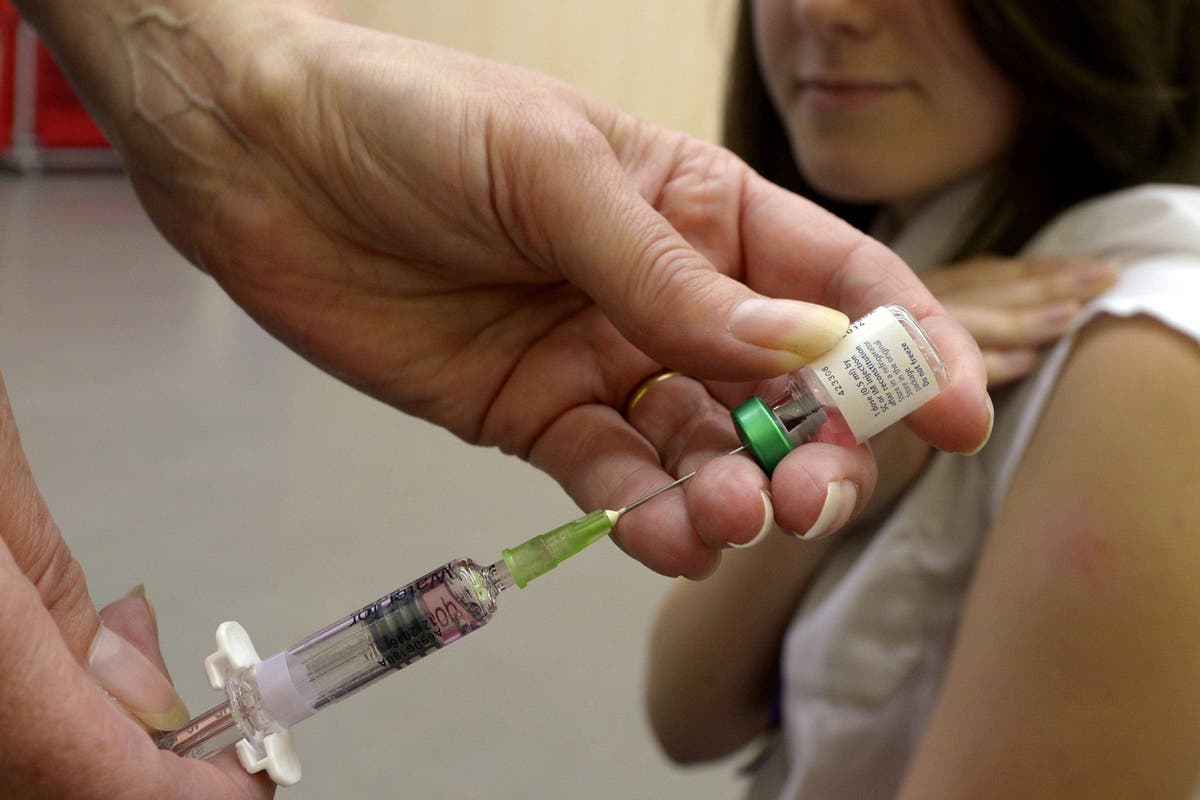Health experts have warned “we must act now” as measles cases have soared across the country amid an increase in unvaccinated children.
There were 1,603 suspected cases of measles in England and Wales in 2023, new statistics from the UK Health Security Agency (UKHSA) show.
MMR cases have increased significantly in the last two years – in 2022, there were 735 cases, and just 360 the year before.
New UKHSA figures showed there are currently 198 laboratory confirmed cases of measles in the West Midlands, with 104 more likely cases.
Around 80 per cent of cases are in Birmingham, mostly in school-age children who are not vaccinated with the measles, mumps, and rubella (MMR) jab.
On Friday, Birmingham Children’s Hospital said it had become inundated with the highest number of children with measles in decades. The hospital treated more than 50 children for the disease in the last month.
Measles is highly contagious and requires 95 per cent vaccine coverage to achieve herd immunity.
In the 1990s and 2000s there was a fall in children receiving the jab due to false claims the vaccine was linked to autism, and the UK lost its measles-free status three years after virus transmission was eliminated.
The World Health Organisation (WHO) declared the UK measles-free in 2016, but this has not been maintained. From 2022/23, the percentage of children vaccinated by their second birthday was 89.3 per cent.
Professor Sir Andrew Pollard, Chair of the UK Health Department’s Joint Committee on Vaccination and Immunisation, warned that unless more children are vaccinated there will be an increase in hospital admissions and even deaths.
He told The Independent: “The main reason for this new outbreak is the increase in unvaccinated children in the last few years.
“Vaccinations have decreased below 90 per cent and this is dangerous. The vaccine is powerful if we use it, and it will protect our children.
“We must act now and the increased cases are a warning that there will be consequences if we don’t. There will be children with severe infections, brain damage and even death.”
Prof Pollard said the evidence was clear and that with the right public health measures, measles should be controllable.
“MMR is one of the most dangerous infections for children – this is a wake up call and a cause for alarm,” he added.
“Whenever there is a measles outbreak, children die, and we cannot allow this.”
In September last year, the UKHSA warned that if MMR vaccination rates do not improve London could see a measles outbreak with tens of thousands of cases.
There used to be between 160,000 and 800,000 cases of MMR a year in England and Wales, but since a vaccine was introduced in 1968, it is estimated that 20 million cases and 4,500 deaths have been prevented.
According to the NHS, nine out of 10 unvaccinated children can catch measles if another child in their class has it, and UKHSA urged parents to check their children have had two doses of MMR.
Dr Naveed Syed, UKHSA West Midlands Consultant in Health Protection, said: “We are seeing cases of measles rising every day in the West Midlands. The virus is very infectious and can spread rapidly among communities, such as schools, if people have not had at least one dose of the MMR vaccine.
“Uptake of MMR in the region is much lower than the 95% needed to protect the population, which is giving this serious disease a chance to get a foothold in our communities. That’s why it’s vital that anyone who hasn’t had TWO doses of the MMR vaccine by the time they started full time school gets immunised as soon as possible.”
An NHS England spokesman said: “Measles is incredibly infectious, can cause serious illness and has no specific treatment — so the best possible protection is vaccination.
“The MMR vaccine is safe and has been used to protect children for decades, so it’s very important to check your child’s vaccination status and get them caught up with any missed doses.”










